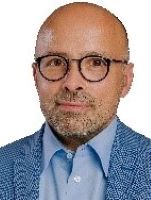The global burden of Translational Medicine
The major goal of translational medicine (TM) is to turn scientific results into community benefits. Unfortunately, based on the data collected by EUROSTAT, an average of 1.7 million people die each year in Europe, of which 1.2 million deaths could have been prevented through more effective primary prevention and public health intervention. Unfortunately, the rest of the world is also experiencing difficulties in translating scientific results into patient benefit. According to OECD Health Statistics 2021, Japan, Korea, South America, Mexico, New Zealand, etc. have almost identical rates of avoidable deaths. Data from major cities (Hong Kong, Paris, London) also suggest that new methodologies are needed if we want to translate the knowledge generated by researchers into everyday life. Academia Europaea has recently developed a translational cycle model to facilitate and accelerate the utilization of scientific knowledge for community benefit. The model focuses equally on healthcare, the acquisition of new scientific results, understandable and digestible summation of results, and their communication to all participants. Importantly, a key element of the model is that healthcare professionals need to have the ability to keep up to date with the latest scientific results. In 2023, AE established its Translational Medicine Working Group with the aim of facilitating global collaboration and the development of educational, research and industrial links across continents to facilitate the early utilisation of scientific results.
Biography
Péter Hegyi is gastroenterologist, internal medicine specialist and clinical pharmacologist. Former President and Secretary General of the European Pancreatic Club, Chair of the Clinical and Veterinary Section of the Academia Europaea, Europe's most prestigious academy.
(i) Scientific Discoveries
Péter Hegyi had highly important discoveries in the field of pancreatology. He has established a critical role for the duct cells in pancreatitis, by discovering that (i) pancreatitis inducing agents like bile acids, fatty acids and ethanol dose-dependently deteriorate pancreatic ductal secretion via mitochondrial damage and calcium overload (ii) the function of CFTR is strongly inhibited by alcohol and fatty acids (iii) restoration of ductal function by ATP or MPTP inhibitorsdecrease the severity of acute pancreatitis. Importantly, he transferred them into randomized clinical trials to foster his scientific discoveries to patients benefits.
(ii) Establishment of a new, multigenerational science education system for the 21st century
He established the National Scientists Academy in Hungary which is incorporated into the present school system, provides continuous science education for secondary school and university students. The Foundation received 6 million Euros governmental fund for running and developing the programme which now receives high international recognition. The academy educates over 1000 secondary school students for science. Many top scientists including 11 Nobel laureates visited the new school system in Szeged. At the request of him, German Nobel Laureate physiologist, Dr. Bert Sakmann has accepted the post of Director of education for Szeged Scientists Academy. https://www.edu-sci.org/
(iii) Establishment of Centre for Translational Medicine
He established the first Centre for Translational Medicine in Eastern and Centre Europe in 2016 at the University of Pécs which was further developed to a nationwide hybrid physician-scientists program. The centre currently educate 263 PhD students, who are also involved in patient care. An important article was published in Nature Medicine concerning the effectiveness of the program.
Website: https://semmelweis.hu/, https://tm-centre.org/hu and https://www.edu-sci.org/?lang=en


